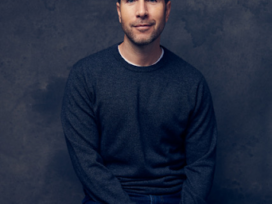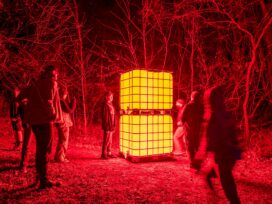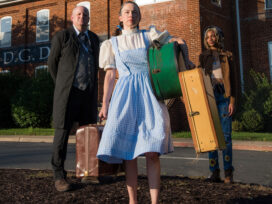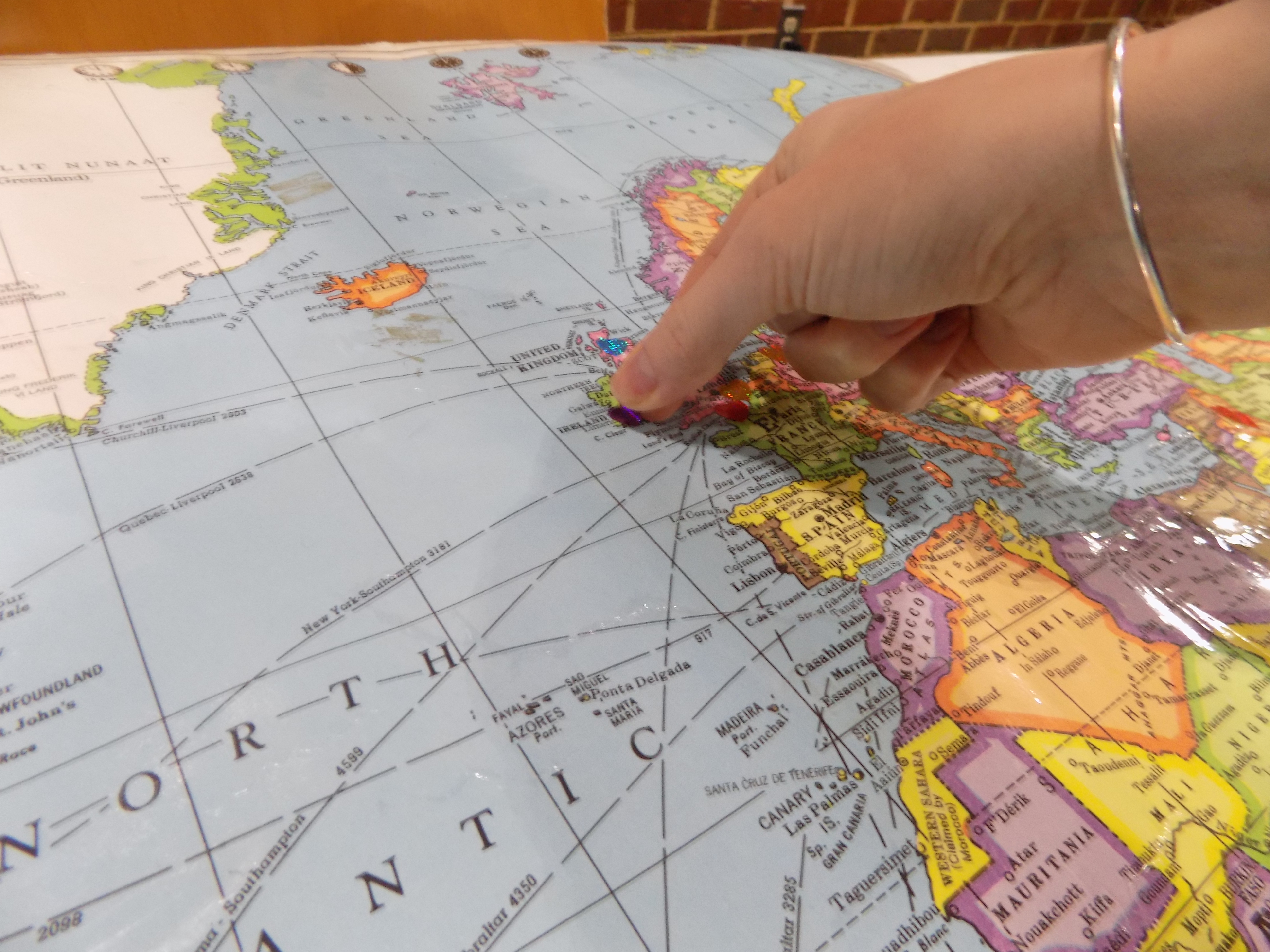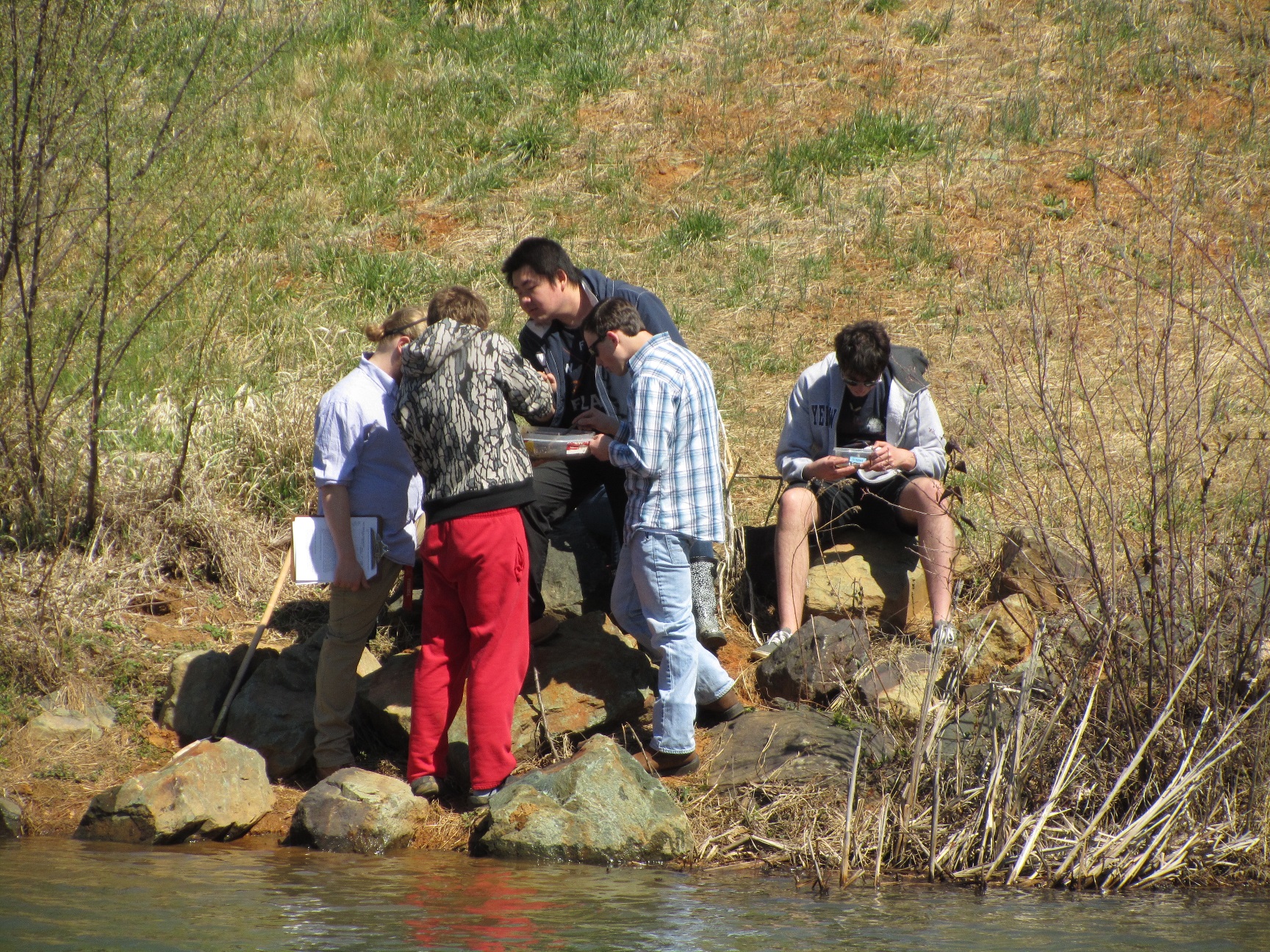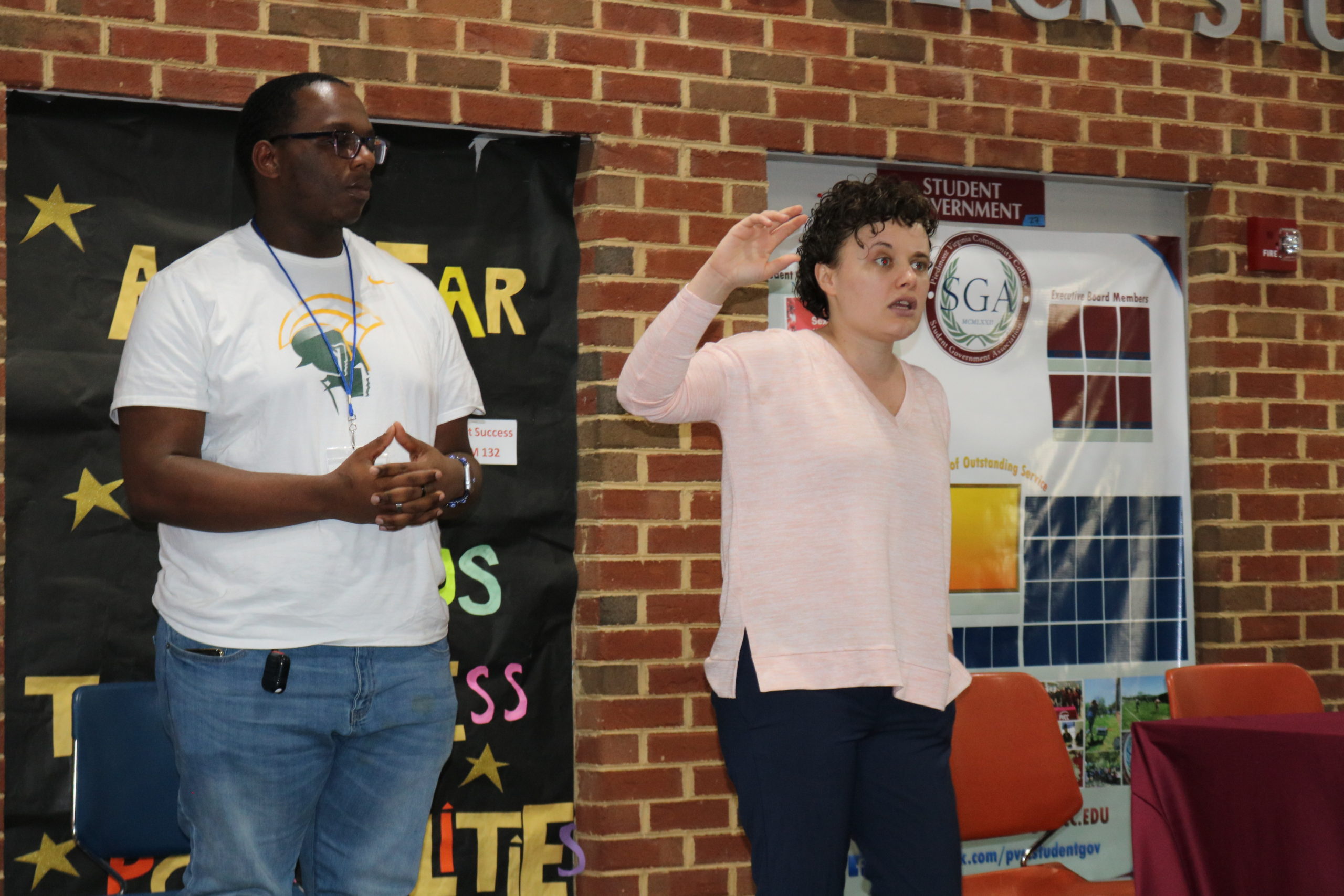
PVCC hosts the Virginia Student Democracy Summit
PVCC hosted this year’s Virginia Democracy Summit on Feb. 15. which lasted from 8 a.m. to 4:30 p.m.. Summit participants slowly filed in and helped themselves to the free breakfast. Promptly at 9 a.m. Connie Jorgensen, Assistant Professor of Political Science, gave brief opening remarks and then summit goers were free to go to the first panel, Using NSLVE Data.
The first panel’s speaker, Kyle Upchurch, works for the National Study of Student Learning, Voting, and Engagement(NSLVE). This organization works with colleges and universities to record student voting rates. The data can then be used to address potentially low voter turnout rates and set goals for civic engagement on campuses that use the data. Upchurch said, “higher education has been about improving democracy,” and PVCC has shown to be an example of this. PVCC has a 70 percent student voter registration rate and 50 percent voting rate as of 2018.
The next panel was about the 2020 census. The panel speakers were Carah Whaley of the Complete Count Commision, Alexis Bowles-Friar from the Office of the Secretary of the Commonwealth, Ethan Gardner from James Madison University, and Tierra Ragland from the Virginia Civic Engagement Table. This year will be the first year that forms can be filled out online. Also, National Census Day will be on April 1.
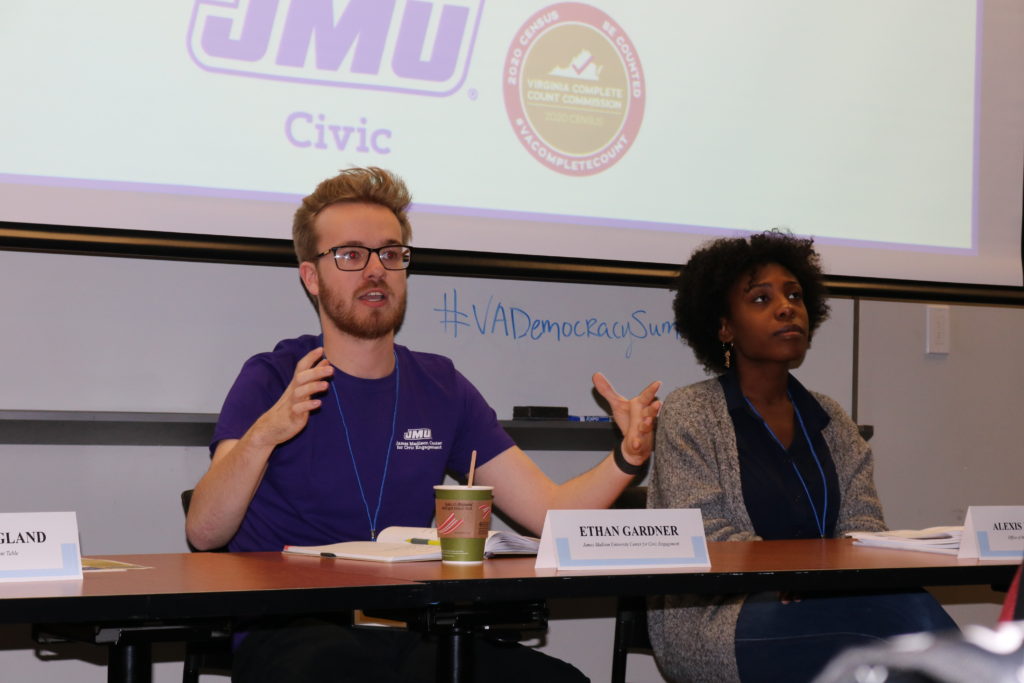
For the rest of the summit, panels would overlap and attendees would have to choose. For my 10:45 a.m. slot I chose Building a Climate For Political Learning. This panel was hosted by Abe Goldberg from James Madison University Center for Civic Engagement, Olusoji Akomolafe from Norfolk State University Department of Political Science, Angelina Clapp who is a student from Jame Madison University, and Erika Neal who is a Virginia State University Fellow. The panel revolved around the political climate at college campuses and how some students and faculty feel uncomfortable sharing their views on campus. Different strategies were discussed to help provide a more open atmosphere.
At 11:45 a.m. I went to Worth the Vote? A Global Perspective on Civic Duty. This panel discussed other countries’ views on politics, primarily Argentina. This panel was led by Yasmene Dergham, a Boren Scholar and a Humanity in Action Fellow, and Madeline Doane, a Virginia Commonwealth University Fellow.
Following this panel was lunch and words from PVCC’s President Frank Friedman. He began by saying PVCC is “pleased to be able to host this,” and went on to discuss the nature of the student college relationship. Friedman said that PVCC teaches students “how to think not what to think”.
After Friedman’s speech a Q&A featuring Delegate Sally Hudson took place. She first spoke on her views on gerrymandering and the brevity of congressional sessions in Virginia. When asked for advice about running for office Hudson said, “Aim for an office that allows you to accomplish your goals,” she followed up with, “You have to know in your heart why you are running.”
Delegate Hudson’s Q&A came to close and it was now time for another panel. Next up for me was Beyond Voting: Other Ways Students Can Get Engaged, a presentation by PVCC’s own Chad Mitchell and Hannah Thacker. The presentation discussed ways to be active that one may not normally think of. Some examples were phone banking and text canvassing for candidates you support.
The final presentation was Error-Free Voter Registration / Ask Every Student. This presentation was led by Maddie Wolf, the Social Designer of Students Learn Students Vote Coalition. Wolf discussed her many projects which have included creation of resources to aid colleges that wish to increase student participation in voting.
The day ended with Votes and Ballots where all the attendees returned to the Bolick Center to gather in groups. Each group was given a poster with categories that related to what their school was doing or could be doing for student voting participation. Once each group placed all their note cards they presented their posters. After the presentations attendees were offered coffee and donuts. They were also urged to take home any leftover food they could.


